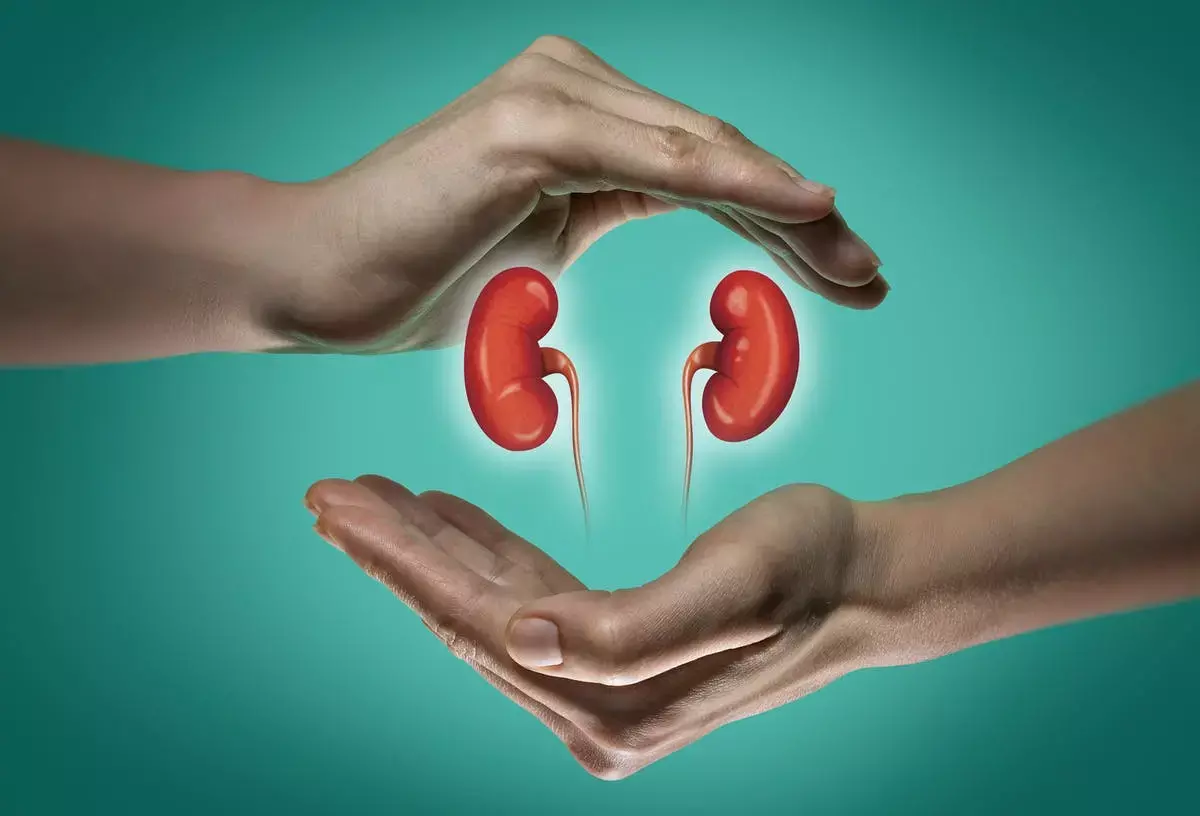- Home
- Medical news & Guidelines
- Anesthesiology
- Cardiology and CTVS
- Critical Care
- Dentistry
- Dermatology
- Diabetes and Endocrinology
- ENT
- Gastroenterology
- Medicine
- Nephrology
- Neurology
- Obstretics-Gynaecology
- Oncology
- Ophthalmology
- Orthopaedics
- Pediatrics-Neonatology
- Psychiatry
- Pulmonology
- Radiology
- Surgery
- Urology
- Laboratory Medicine
- Diet
- Nursing
- Paramedical
- Physiotherapy
- Health news
- Fact Check
- Bone Health Fact Check
- Brain Health Fact Check
- Cancer Related Fact Check
- Child Care Fact Check
- Dental and oral health fact check
- Diabetes and metabolic health fact check
- Diet and Nutrition Fact Check
- Eye and ENT Care Fact Check
- Fitness fact check
- Gut health fact check
- Heart health fact check
- Kidney health fact check
- Medical education fact check
- Men's health fact check
- Respiratory fact check
- Skin and hair care fact check
- Vaccine and Immunization fact check
- Women's health fact check
- AYUSH
- State News
- Andaman and Nicobar Islands
- Andhra Pradesh
- Arunachal Pradesh
- Assam
- Bihar
- Chandigarh
- Chattisgarh
- Dadra and Nagar Haveli
- Daman and Diu
- Delhi
- Goa
- Gujarat
- Haryana
- Himachal Pradesh
- Jammu & Kashmir
- Jharkhand
- Karnataka
- Kerala
- Ladakh
- Lakshadweep
- Madhya Pradesh
- Maharashtra
- Manipur
- Meghalaya
- Mizoram
- Nagaland
- Odisha
- Puducherry
- Punjab
- Rajasthan
- Sikkim
- Tamil Nadu
- Telangana
- Tripura
- Uttar Pradesh
- Uttrakhand
- West Bengal
- Medical Education
- Industry
Azathioprine as good as Mycophenolate mofetil for immunosuppression after kidney transplant: Study

According to a study published in the Plos One journal, mycophenolate mofetil and azathioprine showed similar efficacy in kidney transplant recipients. So, as azathioprine is more economical than Mycophenolate mofetil, it can safely replace the latter.
A group of researchers from U.S.A and Italy conducted a study to evaluate the efficacy of mycophenolate mofetil (MMF) and azathioprine (AZA) against acute cellular rejection (ACR) and chronic allograft nephropathy (CAN) in kidney transplant recipients on steroid-free, low-dose cyclosporine microemulsion maintenance immunosuppression.
The researchers conducted a pragmatic, prospective, multicentre trial conducted in 6 Italian transplant centers, between June 2007 and July 2012 and followed up to August 2016. They compared the outcomes of 233 kidney transplant recipients of a first deceased donor kidney transplant induced with low-dose thymoglobulin and basiliximab and randomized to mycophenolate mofetil (MMF) (750 mg twice/day, n = 119) or azathioprine (AZA) (75 to 125 mg/day, n = 114) with low-dose cyclosporine microemulsion and 1-week steroid. The low-dose cyclosporine dosage was halved in patients without acute clinical or subclinical rejections. Primary endpoint was biopsy-proven chronic allograft nephropathy.
The findings of the study are as follows:
· The donor/recipient mismatches and follow-up low dose cyclosporine blood levels were similar between group donor and recipient characteristics.
· Approximately same percentage of biopsied patients treated by either Azathioprine (35.2%) or Mycophenolate mofetil (33.3%) developed chronic allograft nephropathy (hazard ratio (HR) [95% confidence interval (CI)]: 1.147 (0.691 to 1.904, p = 0.595).
· 20 and 21 patients on Mycophenolate mofetil as compared to 34 and 14 on Azathioprine showed either clinical or biopsy-proven subclinical acute cellular rejection, respectively.
· There were no significant differences in combined events of patient and graft survival, delayed graft function (DGF), 3-year glomerular filtration rate, and any adverse events in both groups.
The authors concluded that in the donor kidney transplant recipients who died and were on low-dose cyclosporine and no steroids, Mycophenolate mofetil showed no superior benefit as compared to Azathioprine. Thus, as Azathioprine is cheaper than Mycophenolate mofetil, Azathioprine can be safely used as an alternative to Mycophenolate mofetil, in combination with minimized immunosuppression.
Reference:
Mycophenolate mofetil versus azathioprine in kidney transplant recipients on steroid-free, low-dose cyclosporine immunosuppression (ATHENA): A pragmatic randomized trial by Ruggenenti P et. al published in the Plos One journal.
Dr. Shravani Dali has completed her BDS from Pravara institute of medical sciences, loni. Following which she extensively worked in the healthcare sector for 2+ years. She has been actively involved in writing blogs in field of health and wellness. Currently she is pursuing her Masters of public health-health administration from Tata institute of social sciences. She can be contacted at editorial@medicaldialogues.in.
Dr Kamal Kant Kohli-MBBS, DTCD- a chest specialist with more than 30 years of practice and a flair for writing clinical articles, Dr Kamal Kant Kohli joined Medical Dialogues as a Chief Editor of Medical News. Besides writing articles, as an editor, he proofreads and verifies all the medical content published on Medical Dialogues including those coming from journals, studies,medical conferences,guidelines etc. Email: drkohli@medicaldialogues.in. Contact no. 011-43720751


